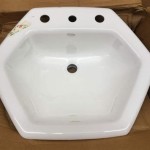How to Replace Bathroom Vanity Doors
Updating your bathroom vanity doors can significantly enhance the aesthetics and functionality of your bathroom. Replacing them is a relatively straightforward DIY project that can be accomplished with basic tools and a little patience. This article will guide you through the process of replacing bathroom vanity doors, outlining the necessary steps, tools, and considerations.
Step 1: Gather the Necessary Tools and Materials
Before embarking on the replacement process, ensure you have the following tools and materials readily available:
- New vanity doors
- Screwdriver (Phillips and flathead)
- Tape measure
- Level
- Pencil
- Drill with drill bits
- Safety glasses
- Work gloves
- Wood glue (optional)
- Caulk
- Paint or stain (optional)
Step 2: Remove the Existing Doors
Start by removing the existing vanity doors. Carefully observe the hinges and identify the screws holding them in place. Using a screwdriver, remove the screws holding the hinges to the vanity cabinet. Once the screws are removed, gently lift the doors off the hinges.
If the hinges are attached with decorative caps, use a flathead screwdriver to pry them off before removing the screws. Take note of the hinge placement and any special features, such as self-closing mechanisms, as this will be helpful when installing the new doors.
Step 3: Prepare for the New Doors
After removing the old doors, clean the vanity cabinet surfaces where the new doors will be attached. This will ensure a clean and secure installation. If necessary, use sandpaper to smooth out any rough edges or imperfections.
If the new doors are different from the old ones, you may need to make adjustments to the hinge placement. Carefully measure the hinge locations on the new doors and mark the corresponding locations on the vanity cabinet using a pencil. Use a drill to create pilot holes for the screws at the marked locations.
Step 4: Install the New Doors
Align the new doors with the hinge locations on the vanity cabinet. Ensure that the doors are level and flush with the cabinet before securing them in place. Use the screws to attach the hinges to the cabinet, ensuring they are tight but not overtightened.
If the new doors have self-closing hinges, ensure they are functioning correctly. Test the doors by opening and closing them several times to confirm they are operating smoothly.
Step 5: Final Touches
Once the doors are securely installed, inspect the entire assembly for any imperfections or gaps. If necessary, apply wood glue to fill any gaps or cracks. Allow the glue to dry completely before proceeding.
To enhance the appearance of the vanity, consider painting or staining the doors to match your bathroom décor. Remember to protect the surrounding area with painter's tape before applying paint or stain.
After everything is dry, use caulk to seal any gaps between the doors and the vanity cabinet. This will prevent water damage and enhance the overall aesthetic.

Updating A Bathroom Vanity
:max_bytes(150000):strip_icc()/8_remove-sink-base-cabinet-56a4a26d3df78cf772835b30.jpg?strip=all)
How To Remove A Bathroom Vanity Cabinet

Bathroom Vanity Transformation Adventures At Home And Away

Diy Inset Cabinet Doors A Beginner S Way Remodelando La Casa

Pin On Home

Repairing A Water Damaged Bathroom Vanity

Diy Inset Cabinet Doors A Beginner S Way Remodelando La Casa

17 Easy Diy Cabinet Door Ideas On A Budget The Handyman S Daughter

5 Things To Replace When Renovating Your Bathroom Cabinet Now

How To Install A Bathroom Vanity And Sink
Related Posts







